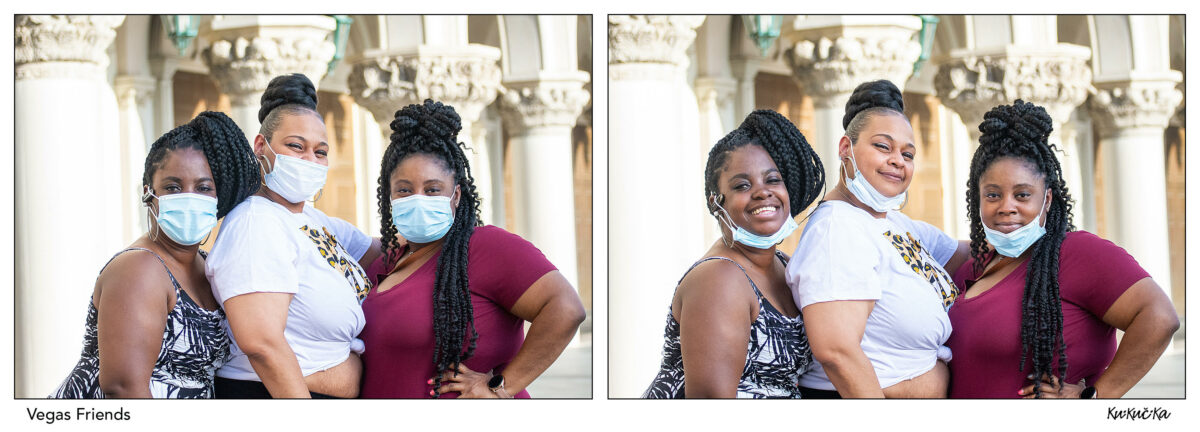At the beginning of the pandemic in 2020, quarantines and mask mandates were on their way to becoming the norm, and people felt isolated, alone.
Photographer Beth Kukucka found a way to reach out and connect people with her camera and just one question: “Who are you behind the mask?”
It turned into a two-year-plus project during which she drove across the country and asked that question after taking two portraits of her subjects, one where they were wearing a mask and one without. The photos are now compiled into a book, “Behind the Mask: America in the Pandemic — A unique look at America behind its mask.”
Kukucka will discuss her project as the Open Call speaker during this weekend’s Pittsburgh Humanities Festival. Her talk is scheduled for 3 p.m. Sunday at the Trust Arts Education Center, Downtown.
The Ebensburg native who now lives in Penn Hills was hooked on photography at an early age. “I think they found film in the afterbirth,” she joked.
She’s worked as a professional photographer for about 35 years and has lived in Los Angeles, New England and New York. But she considers Pittsburgh her home base. “Pittsburgh is a place you keep coming back to. … It is the friendliest city in the world.”
Kukucka was busy making her living as an event photographer when the pandemic hit. Events were canceled, rescheduled and canceled again. “Everything came to a screeching halt,” she said.
In March 2020, she found herself in line at a grocery store next to a family of six; each member was wearing a mask.
“I thought, ‘This will be the new normal,’ ” she said, and she began to wonder if the children, especially the youngest one, would remember what others look like underneath the masks. Would they remember the smiles, the emotions, the feelings?
“I started to think, who are we behind our masks? And I started getting curious about it,” Kukucka said.
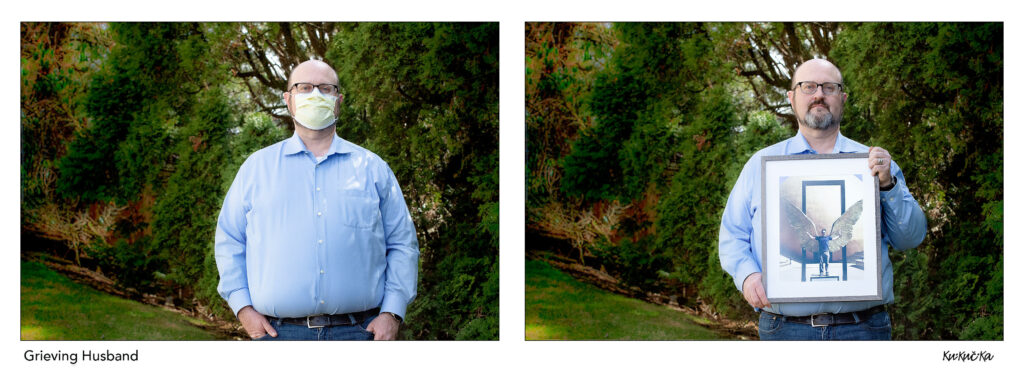
“I started asking people randomly, in parks or while driving. Most seemed receptive to it. I had all this time on my hands. So I took a cross-country trip and asked America who we are behind our masks.”
With no income coming in, Kukucka started a GoFundMe page to raise money for the trip. “I just drove until I ran out of money,” she said, taking the opportunity to look at Americans and find out how they view themselves.
Kukucka’s ease, soft-spoken voice and empathy make it easy to see how she was able get people to think deeply and reveal things they may have not realized about themselves. But that doesn’t mean she didn’t meet some resistance along the way.
“There was one man who refused to wear a mask — he’s the only one in the book without one. … He was sitting outside a bar in Kansas. … He started with profanities and said to tell Biden this and tell Biden that.”
He told Kukucka he would allow her to take his photo if he didn’t wear a mask and if she quoted him directly: “I’m not wearing a goddamn mask.”
She kept her promise, and that is how his portrait appears.
Kukucka found out the man did wear a mask but only while he was on the job as a firefighter. “That changed the way I saw him and changed my experience of what was scary initially. He was really angry.
“When I met someone like that I would usually say, ‘A lot of people feel that way. It’s not you against me. We are all in this together.’ I tried to find some way … to find a middle ground.”
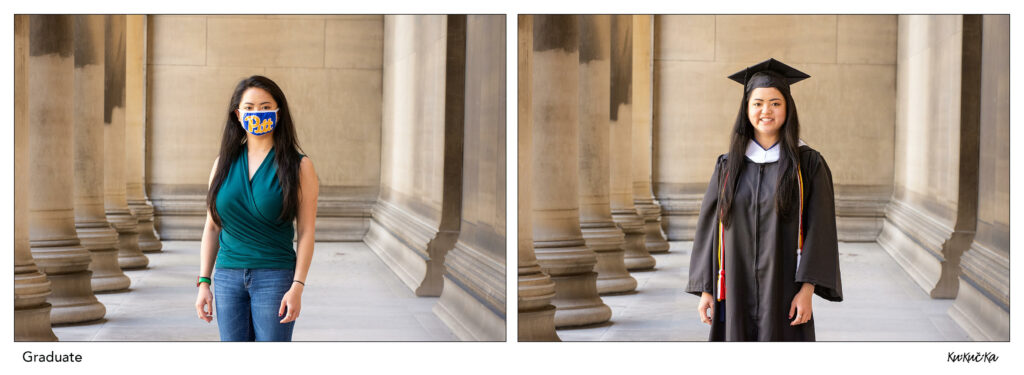
A good number of people she came across were against mask mandates and some thought her intentions were political. But once she explained this was her personal project she found they were more receptive.
Now Kukucka has put together a whole presentation about the project, including a film, that she takes on the road for speaking engagements at churches, libraries and universities. Her talk at the humanities festival will cover how the project started, the pandemic itself and her film showing “the transition between the masked and the maskless.” She said that people are relieved that the pandemic “is over,” depending on one’s definition of that, “but we haven’t picked up the shrapnel” of what it was like to wear the masks and to live under the mandates.
The humanities festival is a co-production between the Pittsburgh Cultural Trust and The Humanities Center at Carnegie Mellon University. The Open Call competition is “a chance for a new voice to be heard at the Festival,” according to the Cultural Trust’s website.
The Open Call usually receives about 25 to 30 entries each year, said Randal Miller, director of special projects for the Trust. Between four and six finalists are chosen from that pool, and they are then required to submit a five-minute video.
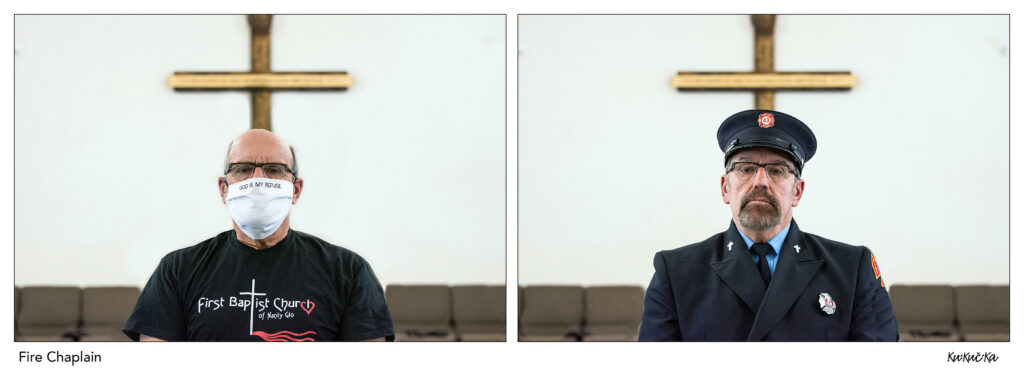
This year’s jury found Kukucka’s project to be “captivating,” Miller said, but the panel had to consider, “We are a year and a half post-COVID, depending on how you look at it. Do audiences really want a reminder of what we lived through?”
But the “quality of her presentation and interesting concept of exploring people behind the masks” overcame any fear of COVID fatigue, he said.
Kukucka’s talk will be among the 14 presentations over Saturday and Sunday that make up the festival’s Core Conversations. Attendees can buy a two-day Core Conversations pass for $10 ($5 for students).
The festival also features “The Legacy of Women in Hip Hop” discussion and concert Friday and “An Evening With Ira Glass: Seven Things I’ve Learned” on Saturday.
Kukucka was surprised when she heard she had earned the Open Call speaker spot, joking that up to that point she had only won a goldfish at a New Jersey beach.
“There’s going to be some wonderful artists at the humanities festival, and I’m really privileged to be among them,” she said.
She expects a receptive audience. “We are all connected. We’ve all had losses. We’re all getting on our feet again. Behind our masks we’re all uniquely connected.”
Now that the mask project is complete, Kukucka is back in business booking portraits and events. She’s also making short films, which are available on her YouTube channel. The films, which include such titles as “Someone’s thinking of you right now,” “Do you wonder if you matter” and “Are you worried about something,” are “reminders that no one is a stranger,” she said.
“This is where my passion is. As I get older, my interest is in making a difference in whatever small level I do, and now that is short films.”
The pandemic brought a lot of loneliness to the surface, she said, but she wants to assure us that we aren’t alone, that we are all part of a human tapestry.
“We share the same emotions. There might be different details, but we all feel afraid or wonder if we’re alone. We’ve missed the connections.”
Find more information about Beth Kukucka at her website, www.bethkphoto.com. For more information about the Pittsburgh Humanities Festival, go to trustarts.org.
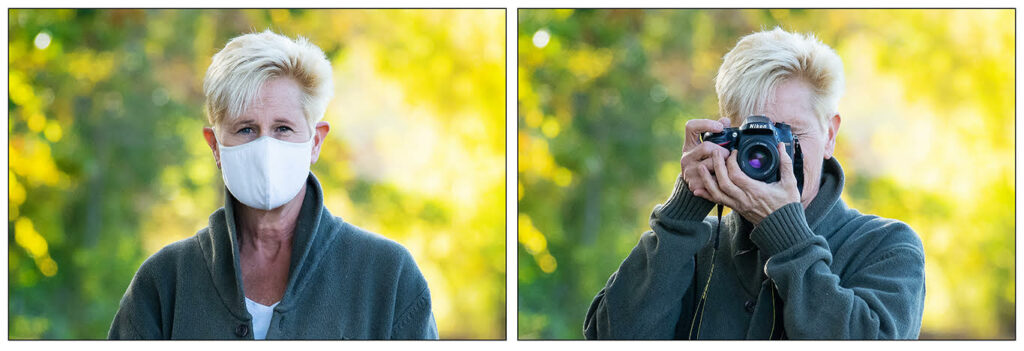
Karen is a copy editor at the Pittsburgh Post-Gazette, but she's currently on strike. Email her at kcarlin@unionprogress.com.

